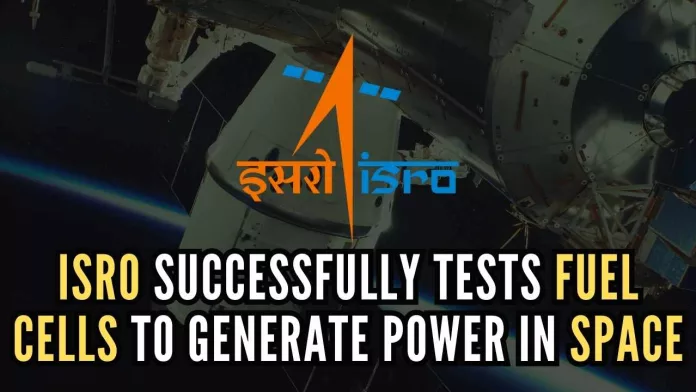
ISRO’s fuel cell that could power India’s space station works flawlessly in space
The Indian space agency Indian Space Research Organisation (ISRO) on Friday said it had successfully tested its fuel cell in space.
According to the ISRO, it has successfully tested a 100 W class Polymer Electrolyte Membrane Fuel Cell based Power System (FCPS) in its orbital platform, POEM3, launched on-board PSLV-C58 rocket on January 1.
The objective of the experiment was to assess Polymer Electrolyte Membrane Fuel cell operation in space and to collect data to facilitate the design of systems for future missions, ISRO said.
During the short-duration test, 180 W power was generated from Hydrogen and Oxygen gases stored on on-board POEM in high-pressure vessels, the space agency said.
“It provided a wealth of data on the performance of various static and dynamic systems that formed part of the power system and the physics at play,” ISRO said.
Powering missions with efficiency and emitting only water, these fuel cells are the future for power production in space habitats.
ISRO said Hydrogen Fuel Cells produce electricity directly from Hydrogen and Oxygen gases, along with pure water and heat. It is an electric generator that works on electrochemical principles, as in batteries, as against the combustion reactions employed in conventional generators.
The ability to produce electricity directly from fuels without any intermediate step renders them very efficient. With water as the only by-product, they are totally emission-free. These features make them ideal candidates for space missions involving humans where electric power, water, and heat are essential since a single system can meet multiple requirements in the mission, ISRO said.
Fuel cells also possess significant societal application potential. They are also considered to be the most appropriate solution to replace the engines of various types of vehicles in use today and to power standby power systems.
Fuel cells can provide range and fuel recharge time equaling that of today’s conventional engine, which gives them a distinct advantage over batteries, and are expected to facilitate emission-free transportation. Fuel cell is an ideal power source for the Space Station as it provides both power and pure water, ISRO added.
[With Inputs from IANS]
For all the latest updates, download PGurus App.v










